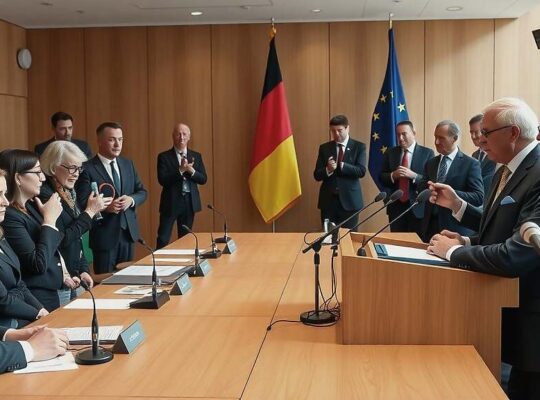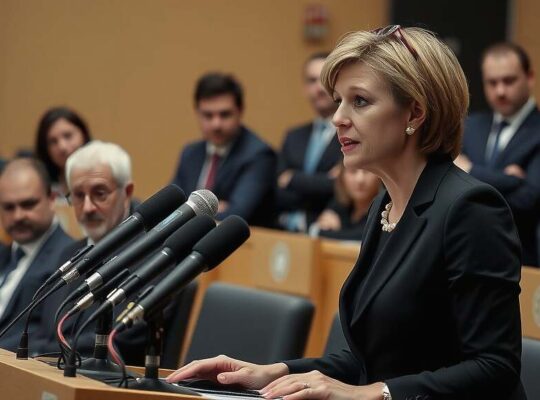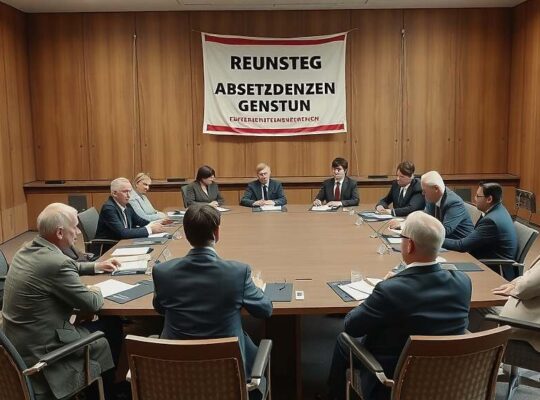The political landscape in Lower Saxony is witnessing heightened tension as calls escalate for the conservative Union bloc to uphold its commitment to the government’s contentious pension package. State Premier Olaf Lies of the Social Democratic Party (SPD) has directly urged the Union to guarantee the package’s passage, arguing that adherence to prior agreements is crucial for maintaining democratic stability.
Lies’s comments, released to the Redaktionsnetzwerk Deutschland, highlight a growing unease within the ruling coalition. He stressed the principle of mutual responsibility, suggesting the Union must now honor pledges made during coalition negotiations. “Discipline applies to both sides” he stated, implicitly criticizing the Union’s recent wavering. His remarks subtly rebuke the notion that minority dissent should derail legislative progress, articulating a view that democratic processes thrive on reaching a majority consensus.
The current predicament stems from internal dissent within the Union parliamentary group, specifically from their “Young Group” which has threatened to withhold support. Their objection centers on the wording used by Labour Minister Bärbel Bas (SPD) regarding the preservation of the pension level, raising questions about the government’s commitment to core social protections.
Beyond the wording dispute, the pension package itself has proven to be a complex compromise, incorporating demands from various factions. The inclusion of the CSU’s-backed expansion of the “mothers’ pension” (Mütterrente) significantly increases the financial burden on the system, while provisions facilitating voluntary continued work beyond the statutory retirement age introduce further intricacies.
The situation underscores a critical fragility at the heart of the government. The Union’s potential defection raises questions about the durability of the coalition and the ability to enact promised reforms. Analysts suggest that Lies’s public plea is a strategic maneuver intended to pressure the Union into honoring its commitments – a sign of the intense internal political maneuvering underway and the potential for a broader crisis if the conservative bloc ultimately refuses to cooperate. The willingness of a significant faction within the Union to prioritize ideological purity over coalition stability will undoubtedly be scrutinized as the debate continues, with potential ramifications for the government’s agenda and its public standing.












